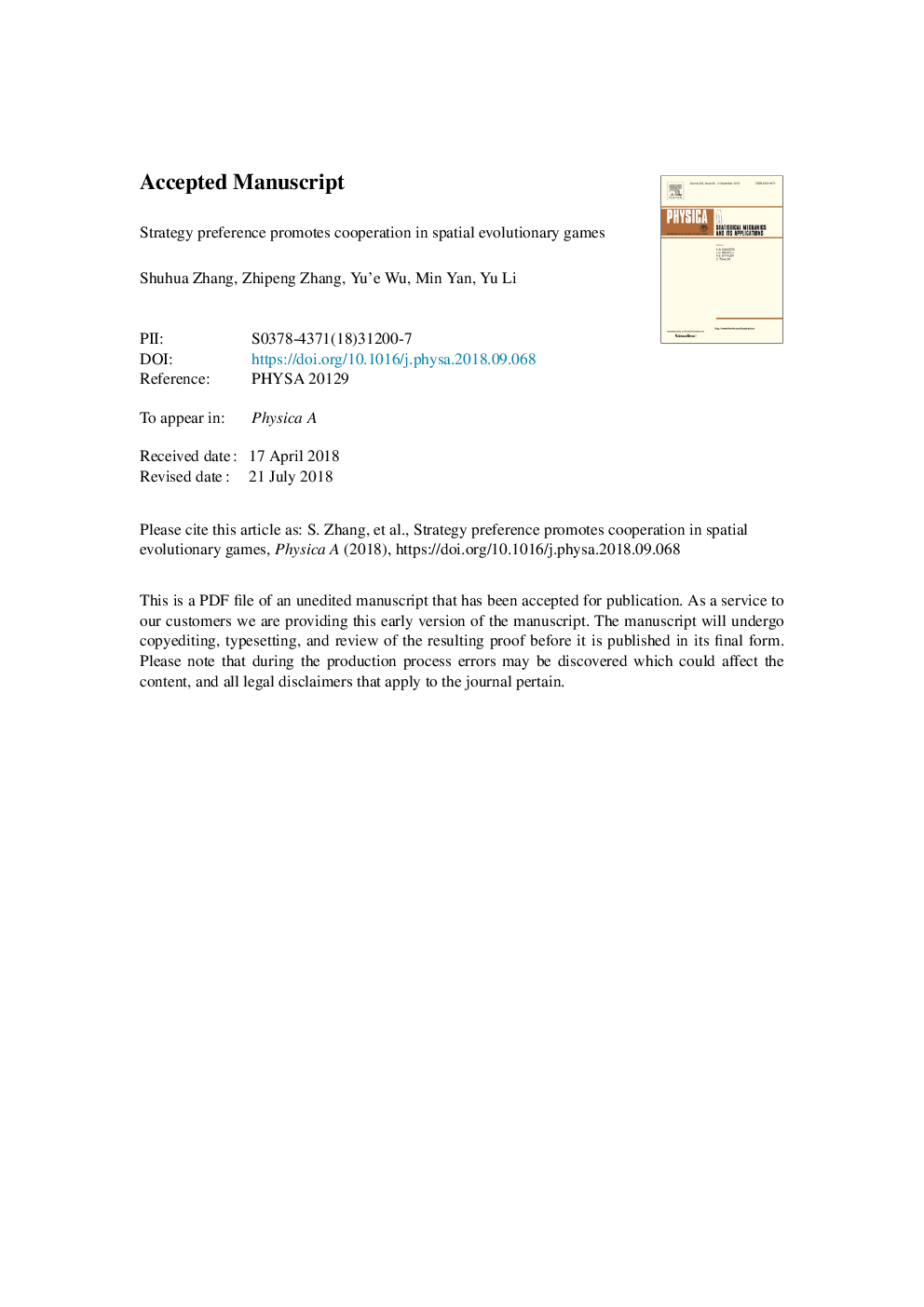| Article ID | Journal | Published Year | Pages | File Type |
|---|---|---|---|---|
| 10482365 | Physica A: Statistical Mechanics and its Applications | 2019 | 24 Pages |
Abstract
Strategy preference is a nonnegligible factor in the evolution of cooperation. In the present paper, we propose a modified strategy updating model, in which strategy preference has a significant influence on the strategy adoption. Strategy preference adjusts the probability of imitation according to partner's strategy in the spatial prisoner's dilemma game. This characteristic depicts the subjectively cognitive ability of players in decision making. To explore the effect of the newly introduced mechanism, we also control the proportion of players using this new model. Numerical results chiefly focus on the evolution and proportion of cooperation, which are obtained under different proportions of this mechanism and intensities of strategy preference. For this dynamics, the results show that the fraction of cooperators presents a growth trend within a wide range of parameters. To validate the generality of this mechanism, we also employ the snowdrift game. Moreover, the evolution of cooperation on ErdÅs-Rényi random graphs is studied for the prisoner's dilemma game. Interestingly, our analysis also reveals that the one's strategy preference can influence the strategy selection of others. The results are conducive to understanding the emergence and persistence of cooperation during the strategy adoption in reality.
Related Topics
Physical Sciences and Engineering
Mathematics
Mathematical Physics
Authors
Shuhua Zhang, Zhipeng Zhang, Yu'e Wu, Ming Yan, Yu Li,
